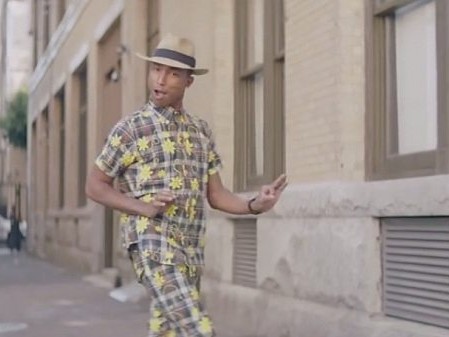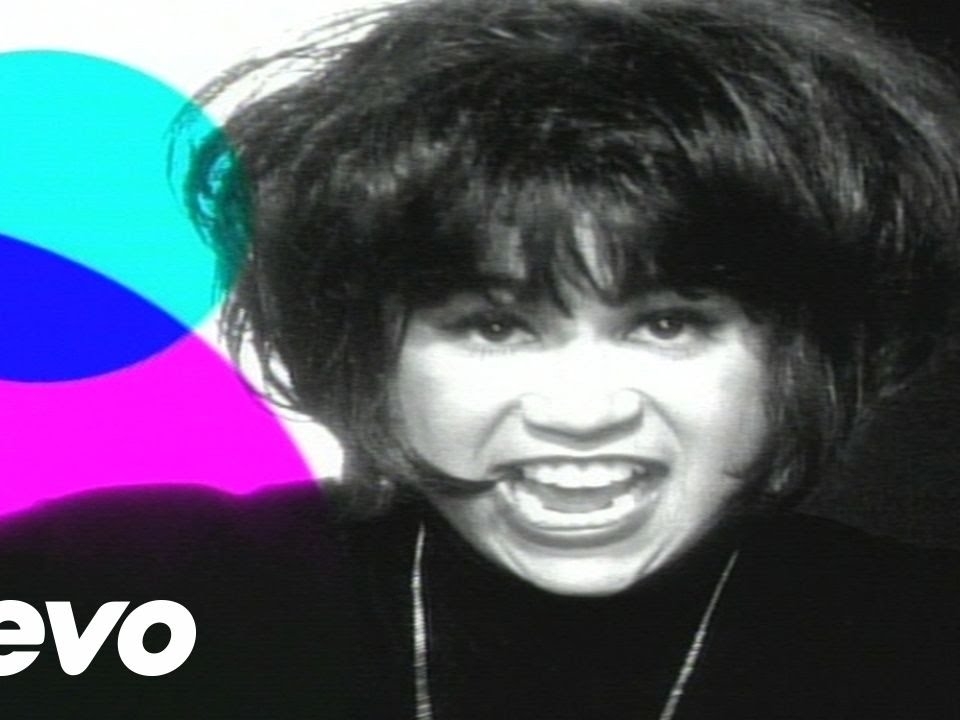You can start here with this link:
But I encourage you to read the entire series on “Blurred Lines” in all actuality you could do well to read the entire blog whether you agree with all that Nicholas Payton is advancing or not. This is a long overdue conversation on numerous levels.
If you don’t have the patience to work your way the post I will extract this quote for your consideration:
“One of the world’s most renowned producers can’t tell the different between a minor chord and a Dominant 7th, something that you learn the first week in music theory class. It’s like a doctor not knowing the difference between your ears and your eyes.” – Speaking on Pharrell’s explanation of the difference between “Blurred Lines” and Marvin’s “Got To Give It Up”
Listen, I think Pharrell is fantastic at what he does and he’s had numerous tunes that I’ve spun over and over throughout the years but let’s be very clear… the ability to craft a catchy hook, hot beat and carve out a place consistently on the popularity charts does not necessarily make one an expert in the nuts and bolts of music. I’m not suggesting even that one need to be an expert, I’m simply stating that they are not necessarily one in the same.
As Nicholas Payton goes on to state in response to Pharrell’s assertion that one only need to look at the sheet music to note the differences between the two compositions, numerous masters of Black Music did not read music for a variety of reasons, but they could hear and in their hearing was all the musical understanding necessary. Major vs. Minor. Blues Forms. Standard Song Form. Dominant Chords vs. Triads. Extended Harmony. One Chord Vamps. Modal.
One of the first posts I wrote for GFM was my assertion that the Blues was being lost in R&B for more emphasis on the Rhythm. I love rhythm, it is the pulse, it moves us, but when that’s all you have, you miss out on so much more. Not only that, in my humble opinion if you can only come up with a bar or two or four of a chord progression and you ride that out for 3:33 with no change, no middle 8, no bridge you’ve done yourself and all of us a disservice. The Godfather always encouraged us to “Take it to the bridge!!!” even if they had been grooving on a Bb7 for 3 minutes they took it there.
But to be quite honest this is part and parcel of where we’ve arrived as a culture. We’d rather buy a 55 inch HD TV then just going to a damn event and experiencing the real HD. Check out this clip from Louis CK (one of my favorite comedians) how he describes how as a society we’d rather put up a phone or an iPad and record instead of taking the moment in as it happens. He further states the real truth, which we’re never going to watch that video and no one on Facebook really cares they just like the preview and keep it moving.
The reason that I entitled this post “The Tipping Point?” is I’m wondering out loud if we’ve finally reached that point where we are going to finally inquire more and expect more of what takes up our sonic space. The irony is that Pharrell is one of the more musical cats making music in his particular manner, I’m not even going to go down the list from him because it wouldn’t even be worth doing that because that’s entirely too easy because too much has been given up in this music by numbers world.
The analogy that Nicholas Payton posited remains for consideration… would you go to a Doctor who didn’t know the basics about his or her craft? Or would you say we’ll everyone goes to this particular Doctor and you know that they’ve served over 35 billion so they must know what they’re doing. I guess until the implant ruptures and well… yeah.
For me this is not an edict where I will firmly state that only trained musicians… that’s crap. There are numerous self-trained musicians who know not only what they’re doing but they create so much beauty out of that knowledge. I will say having gone to music school, that theory is what separates the wheat from the chaff as it were. You make it through (really that first semester) and apply yourself that’s a feather you can always pull out of your cap. Believe me I’m not suggesting that has to always occur in a formal setting. I’ve said it before in these very pages, Frank Zappa is my hero because he was auto-didactic(self-taught) and the music he created we do anyone a great service to study.
But what it all really boils down to is we have reached a point where so many operate without any historical context so instead of being able to say “Oh we’re playing a Blues” people operate under “Hey man show me them chords!” well if you know the form or pattern, I don’t have to show you anything, we’re in this particular key and off we go. We stopped making music and started making beats. Instead of saying let me learn how to play this particular lick or progression(which by the way takes a certain amount of discipline) we said “Let me sample that” and instead of taking that 2-bar sample even further many were content just to stay right there. Are there exceptions to the rule? Absolutely, but that’s a very, very small minority and we can name all those people, but everyone else? What’s really going on? Write me a song. Sing me a song. Give me some music that’s not just popular, but important enough to me that I don’t just endure it because it’s on the radio five times an hour, but because it’s so good that I can’t stop listening to it.
Sly Stone was right in many ways when he wrote “Everybody Is A Star”. I don’t know if he could foersee this particular landscape where, likes, re-tweets, you tube views and everything in and between are cause célèbre but he most have known that what would be missing is the spirit, the muse if you will that is at the core of the mainstream. If everything or everyone is popular then in a way, no one or nothing is… so if that’s ceased to be the measuring stick what will the standard be? I would submit that we are in the outlying stages of a real revolution in music that because we have everything ever recorded (and a lot of what has been written) at our disposal at the drop of a hat, 24/365 that the standard must become the music again. In a connected world like ours, I believe those who will lead this revolution will dis-connect and only appear when the donuts are done as it were. That’s not to say that the creative output won’t reflect the real-time nature of constant and consistent output, but I believe we’re tipping to a point where we will be getting back to the point where the audience really doesn’t care how and when you did it, but that what they’re hearing is great.
Further, I believe that there will be a melding of what’s available, where the production of music won’t necessarily fall into one “school” or the other, but creators will make use of the best of what’s available across the spectrum and write, record and produce in a manner that is as classic as it is new. But most importantly, the audience is going to demand that everyone from the creators, to the performers to the presenters of music stop being lazy and “dialing it in” and seek true inspiration that will move everyone who hears.
Ivan Orr is a multi-instrumentalist, composer, performer, and writer. A native of Charlottesville, Virginia Ivan was involved with the forming and nascent days of The Music Resource Center as its first Program Director. A graduate of Virginia Commonwealth University’s Department of Music, Ivan currently resides in Richmond, VA where he maintains an active performance and production schedule while serving as the Music Editor for Grown Folks Music, a position he has held since 2010.
RELATED POSTS
February 25, 2014
#Happy – Pharrell
November 22, 2010
The American Music Awards 2010(Editorial)
March 14, 2012
Pop Music Talkabout (An Editorial)
October 26, 2010
Everywhere and Nowhere(Editorial)
May 11, 2011







Robbing the past and adding obscenities is a mixture that often times garners a hit for marginal producers in today’s society. A true producer of good music requires originality from the depth of their own soul. A natural gift cannot be purchased or stolen – it comes from within. There is nothing original about Blurred Lines. Money should not be more valuable than the truth in artistry.
Tina,
Thank you for your comment and I couldn’t agree more. I often repeat the words I first heard from Quincy Jones in an interview where he stated “If you put money in the same room as a piano the two will have nothing to talk about.”